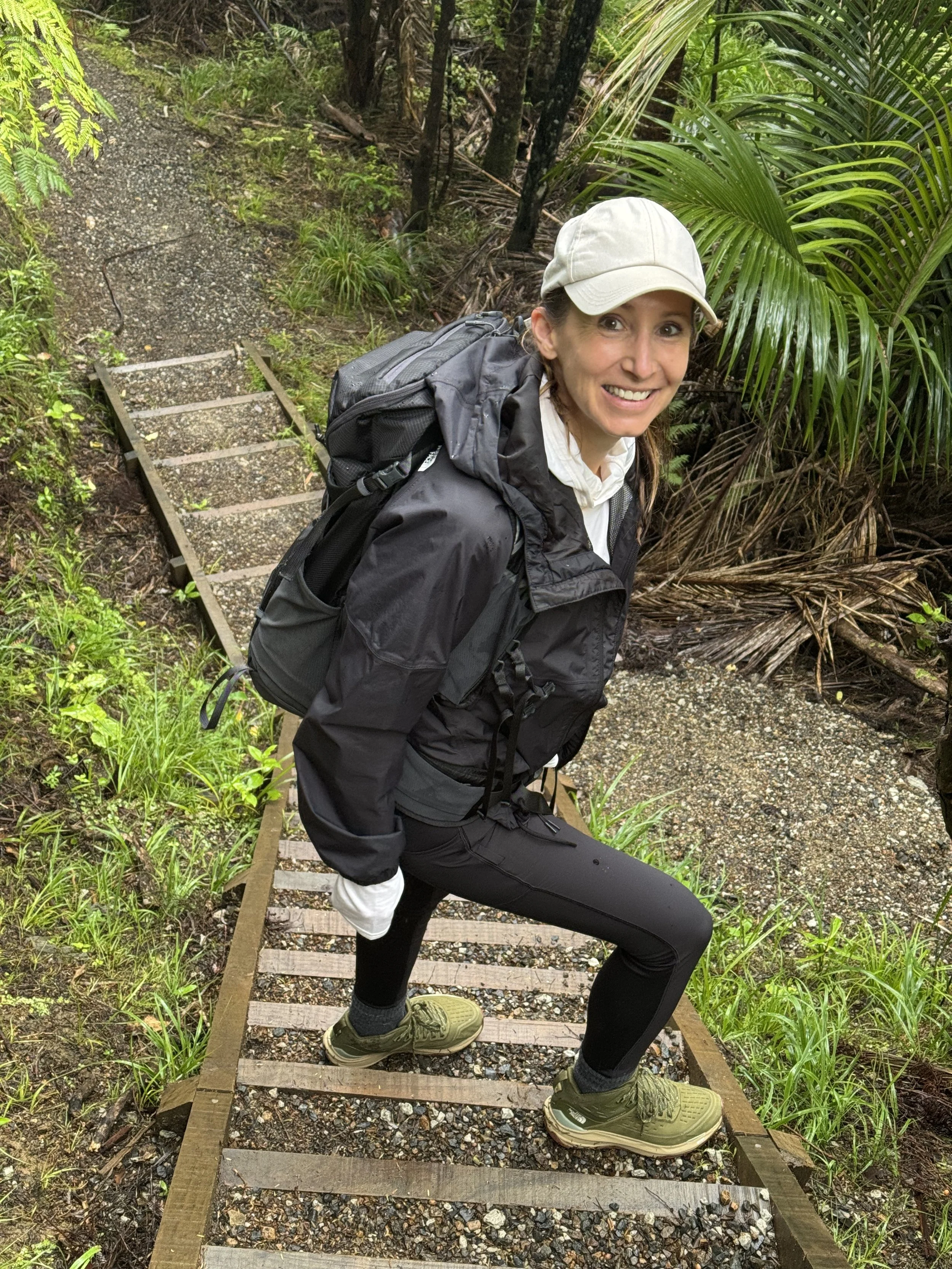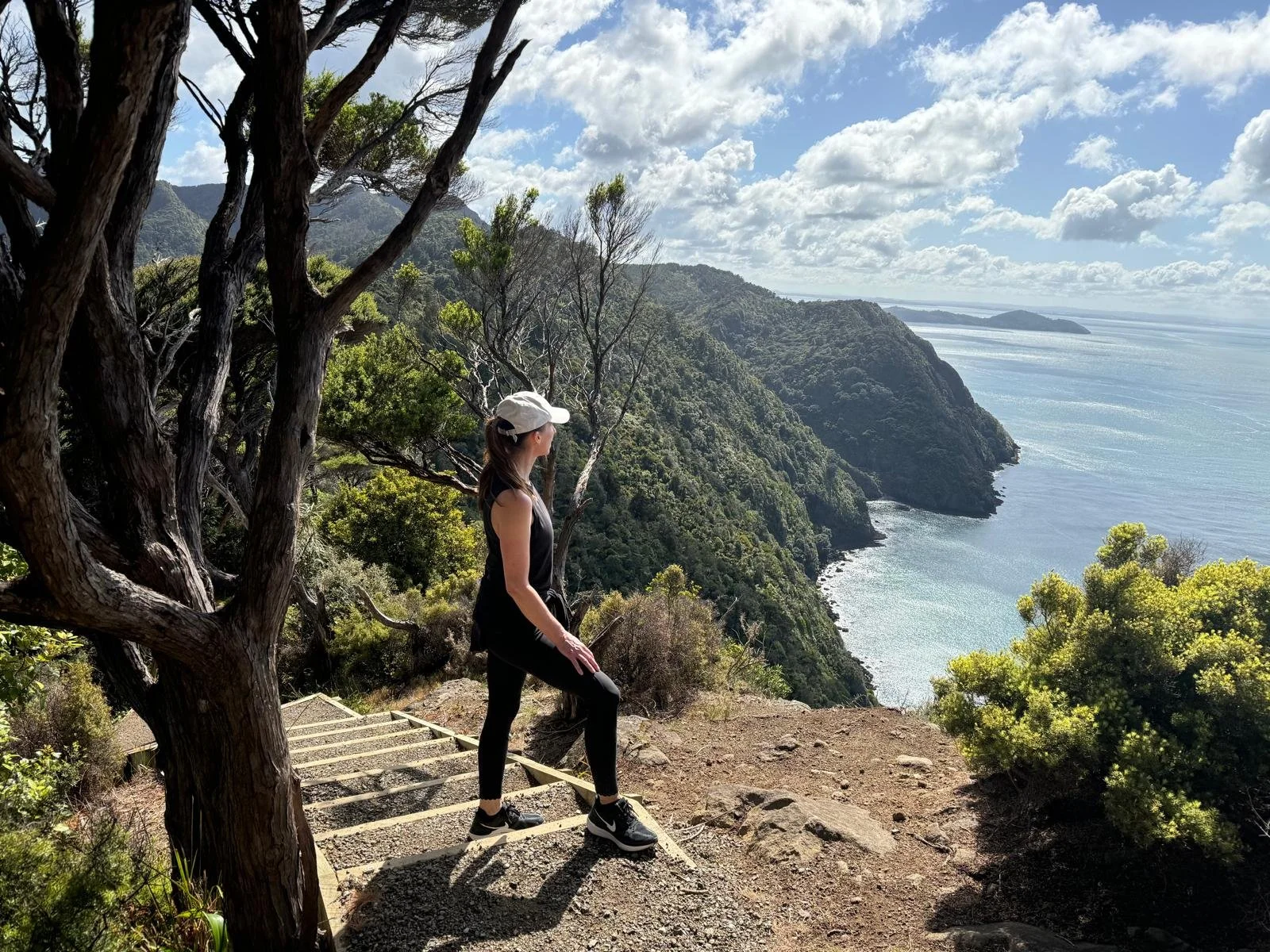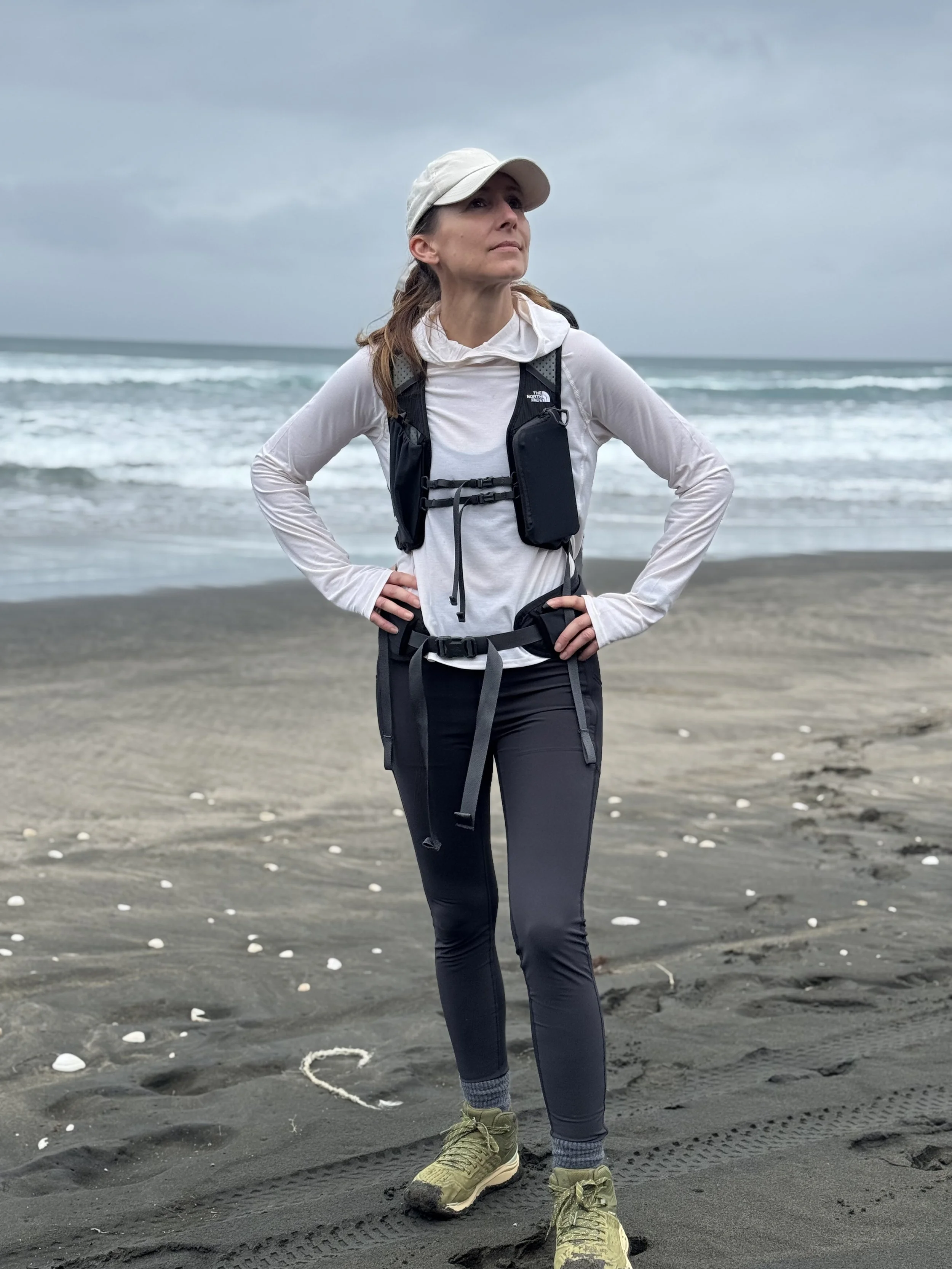Introducing: Stephanie Nierstenhoefer
“My main goals for this adventure go beyond merely reaching a physical destination. This hike is about reclaiming my life, redefining what is possible for me … and demonstrating that a diagnosis of MS does not signify the end of an active, adventurous life.”
We, the Mastering Mountains team, are thrilled to introduce Steph, one of three Expedition Grant recipients this year. We love her perseverance and her passion for the outdoors. We are excited to support her as she strives for her goal. We asked Steph a few questions:
Tell us about yourself.
I was born and raised in Germany and moved with my English partner and our daughter to New Zealand in 2002, where we made Titirangi (West Auckland) our home. This has allowed me to pursue my passion for hiking and running. I am an outgoing and active person who loves the outdoors. I have a background in Communication Design and run a small artist studio called OOAK.
I thrive on all kinds of outdoor activities like hiking, swimming, kayaking, and cycling. I have been an active runner for 20+ years and practice yoga daily. I enjoy hiking in the Waitakere Ranges several times a week with friends and family.
Eighteen months prior to my MS diagnosis, I was hospitalised with severe ulcerative colitis. Shortly after, I had a basal cell carcinoma removed from my left temple, which required a large skin graft from my left leg. These health issues abruptly halted my fitness routine, and my health never fully recovered.
In May 2023, I began experiencing a range of symptoms, including double vision, balance issues, brain fog, extreme fatigue, and vertigo. My left side was significantly affected, with uncontrolled leg movements becoming more frequent. These symptoms progressively worsened over the following months. Initially, I was referred to Auckland’s emergency eye clinic, where the possibility of multiple sclerosis (MS) was mentioned.
After undergoing MRIs of both my brain and spine, I was officially diagnosed with relapsing remitting multiple sclerosis (RRMS) in August 2023. The diagnosis was difficult to accept, and for several months, I found myself in denial, withdrawing from friends and family during that time.
I realised I had to take control of my illness and enrolled in a Menzies Course in early 2024 to learn as much about MS as possible.
It is quite surprising how little is known about MS, yet it is remarkable how much medical advancements over the past decade have significantly supported those living with the condition. There are many misconceptions about MS, with a common one being that everyone with MS will eventually end up in a wheelchair.
My main goals for this adventure with Mastering Mountains go beyond merely reaching a physical destination. This hike is about reclaiming my life and redefining what is possible for me. Training for and completing this hike will demonstrate that a diagnosis of MS does not signify the end of an active, adventurous life. By embarking on this five-day hike, I aim to reaffirm life, show resilience, and open up about my condition.
What does it look like living with your diagnosis?
I started on 6-weekly Tysabri infusions in September 2023 and completely changed my diet; I now avoid dairy, meat, and processed foods. I have found that diet and exercise play a major part in controlling my MS and noticed that stress significantly impacts me both physically and mentally.
The unpredictability of MS and how sudden physical changes can occur makes planning particularly challenging.
Tell us about your mission.
Prior to my diagnosis, I set a personal challenge to complete all of New Zealand’s Great Walks. Initially, the Covid lockdowns disrupted my plans, and managing other medical conditions has further slowed my progress. Despite these setbacks, I remain determined to achieve this goal. My first milestone is to hike the Milford Track in early February, 2025.
The most significant challenge will be maintaining my fitness while learning how to manage fatigue and understanding my limits. I believe that setting a specific goal will provide the focus and motivation needed to return to training after any setbacks.
With the help of the Mastering Mountains grant, I started physiotherapy at Rope Neuro in Grey Lynn. I have already made significant dietary changes and started regular yoga sessions early this year. I currently walk an average of 20 km per week and recently even managed a few runs. I will begin tackling longer parts of the Hillary Trail in the coming month, including multiple-day hikes.
If you could say one thing to someone with a similar condition, what would you say and why?
You’re not alone. There is a lot of support available, especially from MS New Zealand and MS Auckland. Charities like Mastering Mountains and organisations like Oceans of Hope and Overcoming MS have been a great source of constant information and inspiration. It’s okay to reach out, be vulnerable and ask for help.
Thank you
Mastering Mountains would like to offer a huge thank you to our sponsors for making this grant possible:
The North Face Explore Fund for funding the grant and supplying clothing;
MitoQ for a supply of their antioxidant supplement;
Southern Approach for supplying equipment.



